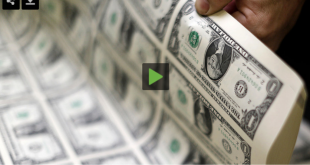By K. Kıvanç Karaman, Sevket Pamuk and Seçil Yıldırım-Karaman This article first appeared at Vox There is a notable lack of long-run analyses of monetary systems and their stability. This column addresses this gap by looking at the monetary systems of major European states between 1300 and 1914. The evidence collected suggests that, despite many switches between standards and systems, fiscal capacity and political regimes ultimately shaped patterns of monetary stability. Theories of monetary...
Read More »Money and monetary stability in Europe, 1300-1914
By K. Kıvanç Karaman, Sevket Pamuk and Seçil Yıldırım-Karaman This article first appeared at Vox There is a notable lack of long-run analyses of monetary systems and their stability. This column addresses this gap by looking at the monetary systems of major European states between 1300 and 1914. The evidence collected suggests that, despite many switches between standards and systems, fiscal capacity and political regimes ultimately shaped patterns of monetary stability. Theories of monetary...
Read More »David Orell — Economics is quantum
Money and brains are both quantum phenomena – so it's not surprising that economics is overdue for a quantum revolution... AeonEconomics is quantum David Orell
Read More »Money creation in a post-crisis world
As many of you know, I have spent much of the last seven years explaining to anyone who will listen that banks do not "lend out" deposits or reserves. Rather, they create both loan assets and matching deposit liabilities "from nothing" by means of double entry accounting entries. Creating money with a stroke of the pen (or a few taps on a computer keyboard) is what banks do.But this does not mean that the money that banks create comes from nowhere. It doesn't. It is only created when they...
Read More »but what if I want my specials to have intrinsic value…
[unable to retrieve full-text content]but what if I want my specials to have intrinsic value…
Read More »As a related matter, never say “give me all of your money” when…
As a related matter, never say “give me all of your money” when mugging an economist: “So, like, do you mean only M1 or do I need to hand over M2 as well? Are you only counting items officially recognized as currency or are you demanding all items that could function as money? Technically speaking, fiat money has no intrinsic value so is there any chance I can convince you that this is not worth your time?” You can also see the post on the original site here.
Read More »Reply to Selgin on the Origin of Electrum Coinage, Part 2
This is part 2 of my response to George Selgin’s post here:George Selgin, “‘Lord Keynes’ contra White on the Beginnings of Coinage,” Alt-M Ideas for an Alternative Monetary Future, August 30, 2017.Selgin refers to various new data from the past 20 years or so, and much of the new evidence was presented at a conference called “White Gold: Revealing the World’s Earliest Coins,” held from 25–26th June, 2012 (International Congress at Israel Museum, Jerusalem).Wartenberg (2017), for instance,...
Read More »Lord Keynes — Larry White on the Origins of Coined Money: A Critique
The latest iteration in the controversy over theory of money, money creation, and historical origins of money use.Social Democracy For The 21St Century: A Post Keynesian PerspectiveLarry White on the Origins of Coined Money: A CritiqueLord Keynes
Read More »Capitalism is national & transnational, but what about the money?
This is my short response, originally posted here, to William I. Robinson's post here and Fred Magdoff's note in the comment section of that post:While I generally agree with Robinson's and Magdoff's analyses, what is absent, specifically with respect to Robinson's discussion, is a concrete assessment of the acute variables that measure the degree to which national States have the capacity to engage in power-maximizing behavior and, thus, pursue certain responses, i.e. imperialism, to the...
Read More »Money for Nothing…
April 18th, 2017 The production of money is ultimately the struggle for control over resources, wealth, people and our environment. But there is a surprising level of ignorance around how banks create money out of thin air and the benefits which flow from it. So on this programme we shine a much-needed light on who should get the privilege of creating our money. Host Ross Ashcroft is joined by the economist and author of the recent book The Production of Money, Ann Pettifor and founder...
Read More » Heterodox
Heterodox







